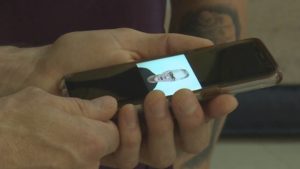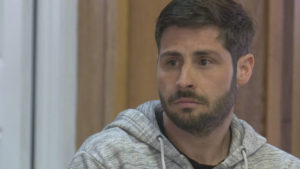‘We have an epidemic on our hands that we’re not discussing’

A group of Island veterans is using social media to raise awareness of the impact of post-traumatic stress disorder (PTSD) and suicide within the veteran community.
The new campaign is called “If I Take My Life” and it asks veterans to talk about their experiences with PTSD and how mental health issues have impacted their lives.
The video launched online last week and already has nearly 50,000 views on Facebook.
One of the voices behind the campaign belongs to Dennis MacKenzie, a veteran who served for nine years with the Canadian Armed Forces and now runs Brave and Broken — an organization that offers support to veterans and first responders.
MacKenzie said he was released from his duties and returned home to P.E.I. because of his PTSD following a tour in Afghanistan.
“The message is pretty simple, but raw,” MacKenzie said. “If I take my life, please talk about it.”

It’s still a stigma. … It’s not something that is just a day to day conversation, but that’s what I’m hoping to do. I’m hoping this video can make it a day to day conversation.”
MacKenzie said he’s lost eight comrades to suicide or substance abuse as a result of PTSD and wants the campaign to raise awareness of how severe suicide and mental health issues are among Canada’s veterans.
“I’m just tired of seeing veterans die suddenly and us left to question and find out why,” MacKenzie said. “We have an epidemic on our hands that we’re not discussing and if we’re not going to talk about it there’s going to be no way of finding a solution.”
‘Unfortunately our injuries are invisible’
The video features several Island veterans calling on Canadian veterans, their families and their communities to share their own experiences with PTSD, suicide and mental illness.
For Jennifer Young, a veteran who served for 16 years with the Royal Canadian Air Force as a supply technician, the campaign is a way to reduce stigma surrounding mental illness and suicide within the veteran community.
“People are OK to talk about somebody who has cancer, people are OK to talk about somebody that has a broken leg. Unfortunately our injuries are invisible.”
Putting out a video like this, she said, lets people know they’re not alone.
“We just want other people to know that there are people out there that go through those feelings,” Young said.
MacKenzie said he also wants the campaign to change the way society talks about suicide and PTSD-related deaths.
“All of these are going underreported and my hope is to change that,” he said. “There are thousands and thousands of Canadian veterans and first responders suffering with the same thing and we need to be made aware of the severity of the situation.”
‘Don’t be afraid’
Jay Power, a veteran who served for 21 years, also lent his voice to the campaign. He said he has lived with PTSD for the last nine years and has lost several comrades to suicide in that time.
He added that he was hesitant to share his story, but has realized how his experience can help others.
You need to let the person know you love them, you care and you’re here to listen.
— Dennis MacKenzie
“It’s important for people to know that they’re not alone,” Power said.
“That there are people that feel this way and feel like me or feel like them and it’s very important that we start talking about it.”
With the help of his loved ones, he started attending meetings and found that in sharing his story he feels better and wants others to know there are many people out there who want to hear their stories.
“Don’t be afraid to show your story, don’t be afraid to be judged, don’t be afraid of the stigma,” he said. “Just get out there, you’re going to save lives, you’re going to help people and that’s what we need to do. Not just as veterans but as a whole nation, a community.”
MacKenzie said he hopes this campaign will be helpful for people — even those who may not be ready to share their story.
“By witnessing their community open up and talk about it,” MacKenzie said. “It gives you that pillow to land on to know that ‘OK, if I come forward my community has their arms open for me.'”
MacKenzie said he and other members of the group plan to release more videos, sharing their message in their own words in the hope of inspiring veterans across Canada to create their own videos.
“I just want people to find some level of comfort level in being able to talk about this,” he said.
“People need to understand you just need to listen. You need to let the person know you love them, you care and you’re here to listen.”


